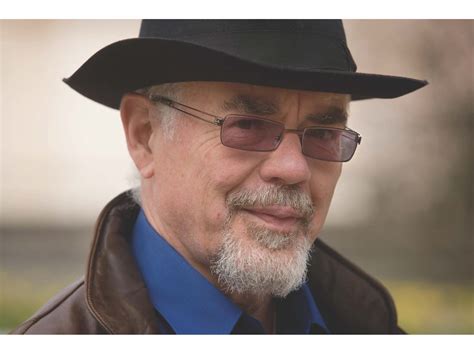A Quote by Karl Pearson
The right to live does not connote the right of each man to reproduce his kind ... As we lessen the stringency of natural selection, and more and more of the weaklings and the unfit survive, we must increase the standard, mental and physical, of parentage.
Related Quotes
Creationists argue that natural selection is only a negative process, and therefore cannot create anything. Chopra argues that skepticism is only a negative process, and therefore does not lead to knowledge. Both are wrong for the same reasons. They ignore the generation of diversity and new ideas upon which natural selection and skepticism acts. Weeding out the unfit is critical to both - natural selection allows evolution to proceed, and skepticism allows science to advance.
. . . a basic law: the more you practice the art of thankfulness, the more you have to be thankful for. This, of course, is a fact. Thankfulness does tend to reproduce in kind. The attitude of gratitude revitalizes the entire mental process by activating all other attitudes, thus stimulating creativity.
I have called this principle, by which each slight variation, if useful, is preserved, by the term Natural Selection, in order to mark its relation to man's power of selection. But the expression often used by Mr. Herbert Spencer of the Survival of the Fittest is more accurate, and is sometimes equally convenient.
You can be a thorough-going Neo-Darwinian without imagination, metaphysics, poetry, conscience, or decency. For 'Natural Selection' has no moral significance: it deals with that part of evolution which has no purpose, no intelligence, and might more appropriately be called accidental selection, or better still, Unnatural Selection, since nothing is more unnatural than an accident. If it could be proved that the whole universe had been produced by such Selection, only fools and rascals could bear to live.
A man follows the path laid out for him. He does his duty to God and his King. He does what he must do, not what pleases him. God's truth, boy, what kind of world would this be if every man did what pleased him alone? Who would plough the fields and reap the harvest, if every man had the right to say, 'I don't want to do that.' In this world there is a place for every man, but every man must know his place.
No man can delegate,... any right of arbitrary dominion over a 3rd person; for that would imply a right in the 1st person, not only to make the 3rd person his slave, but also a right to dispose of him as a slave to still other persons. Any contract to do this is necessarily a criminal one...To call such a contract a “constitution” does not at all lessen its criminality, or add to its validity.
If... deceit is fundamental to animal communication, then there must be strong selection to spot deception and this ought, in turn, to select for a degree of self-deception, rendering some facts and motives unconscious so as not to betray - by the subtle signs of self-knowledge - the deception being practiced.' Thus, 'the conventional view that natural selection favors nervous systems which produce ever more accurate images of the world must be a very naive view of mental evolution.
The fundamental rights of [humanity] are, first: the right of habitation; second, the right to move freely; third, the right to the soil and subsoil, and to the use of it; fourth, the right of freedom of labor and of exchange; fifth, the right to justice; sixth, the right to live within a natural national organization; and seventh, the right to education.
Before the tribunal of nature, a man has no more right to life than a rattlesnake; he has no more right to liberty than any wild beast; his right to the pursuit of happiness is nothing but a license to maintain the struggle for existence, if he can find within himself the powers with which to do it.
Truly, this earth is a trophy cup for the industrious man. And this rightly so, in the service of natural selection. He who does not possess the force to secure his Lebensraum in this world, and, if necessary, to enlarge it, does not deserve to possess the necessities of life. He must step aside and allow stronger peoples to pass him by.
There's a kind of luck that's not much more than being in the right place at the right time, a kind of inspiration that's not much more than doing the right thing in the right way, and both only really happen to you when you empty your heart of ambition, purpose, and plan; when you give yourself, completely, to the golden, fate-filled moment.







































